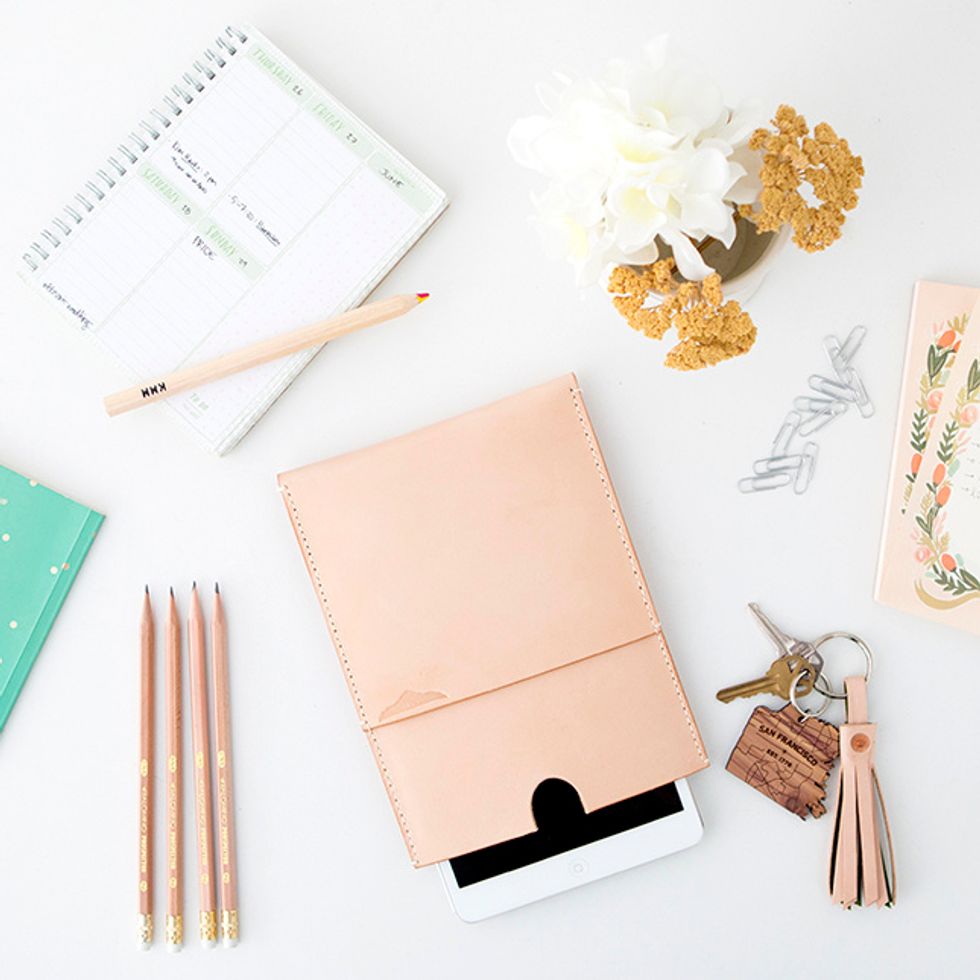Money stress getting to you? Pro advice for setting an EASY and realistic budget.
5 Ways to Afford Self Care Without Going Broke

Theresa Gonzalez is a content creator based in San Francisco and the author of Sunday Sews. She's a lover of all things design and spends most of her days raising her daughter Matilda.
We are all about self care and its many benefits but spa treatments, fitness classes and hair upkeep don't come cheap. In fact, according to Brittney Castro, CFP of Mint, people spent on average $800 on self care last year. "I really do encourage self care, especially for women, because often times we want to cut that out of the budget first but your well-being is so important," says Castro. So how do you navigate the tricky tightrope of being able to afford self care without feeling guilty that your $100 could have gone toward paying student loans or credit card debt? We chatted up Castro on how to actually make a budget work for you this year.

Follow the 50/30/20 rule. "It's smart to budget certain self care items into your cash flow in addition to your savings goals and find that optimal balance," says Castro. And there's an easy formula to figure that all out. Fifty percent of your net income should go to fixed expenses, the ones you can't change: rent, utilities, health insurance. Another 30 percent are for variables like self care, travel and dinners out. Twenty percent goes toward retirement, a cash safety net and any savings for the future, like a down payment on a home.

Make a money date. Once you've set your monthly budget, mark your calendar to spend time reviewing your money each month. "I call it a date so it's more like a lifestyle habit because most people are like 'Ugh, who wants to budget? That's so boring!' But I think if you can make it fun, whatever you need to do." Coffee date, anyone? Each month review where you are and "course correct as life happens," says Castro. For example, let's say you're faced with an unexpected move. The next month maybe eat out less to balance it out.

Get creative. If you want to add more self care into your budget, look at ways to make it happen; for ex. $100 for a monthly massage may mean one or two fewer nights out. "You come out of it from a creative space, like how can I make this work for me vs. I can't do it," says Castro. "With debt, in particular, you have to remind people that they have the ability to get out of it. They have the power to make more money if they want to or find ways to cut back. It may not happen overnight but find the right plan and pay it off. It's as much emotional as it is practical."

Set three main goals. Prioritizing your goals, finding the money to meet them and then achieving them can feel so empowering. Decide on three areas of focus for your year, whether it's paying off a debt, putting self care in the budget or contributing to a savings account, then you can make real progress, ultimately making you feel more confident about money. "We all have access to information, that's not the problem, the problem is it's so overwhelming. There are so many things you need to do in your financial life that it's about helping people prioritize their goals."

Budget as a form of self care. Money can be stressful but having the type of clarity that comes from balancing your budget can take a lot of the stress away that comes from not knowing where your money is going each month. "It's creating a habit that you want to have for the rest of your life so eventually what you'll do every month actually makes you feel a lot better." Same goes for couples: "I tell them you need to talk about it together. You can go out to dinner after and celebrate but you've got to do it."
Got a great budgeting tip? Share @britandco! Happy budgeting!

















